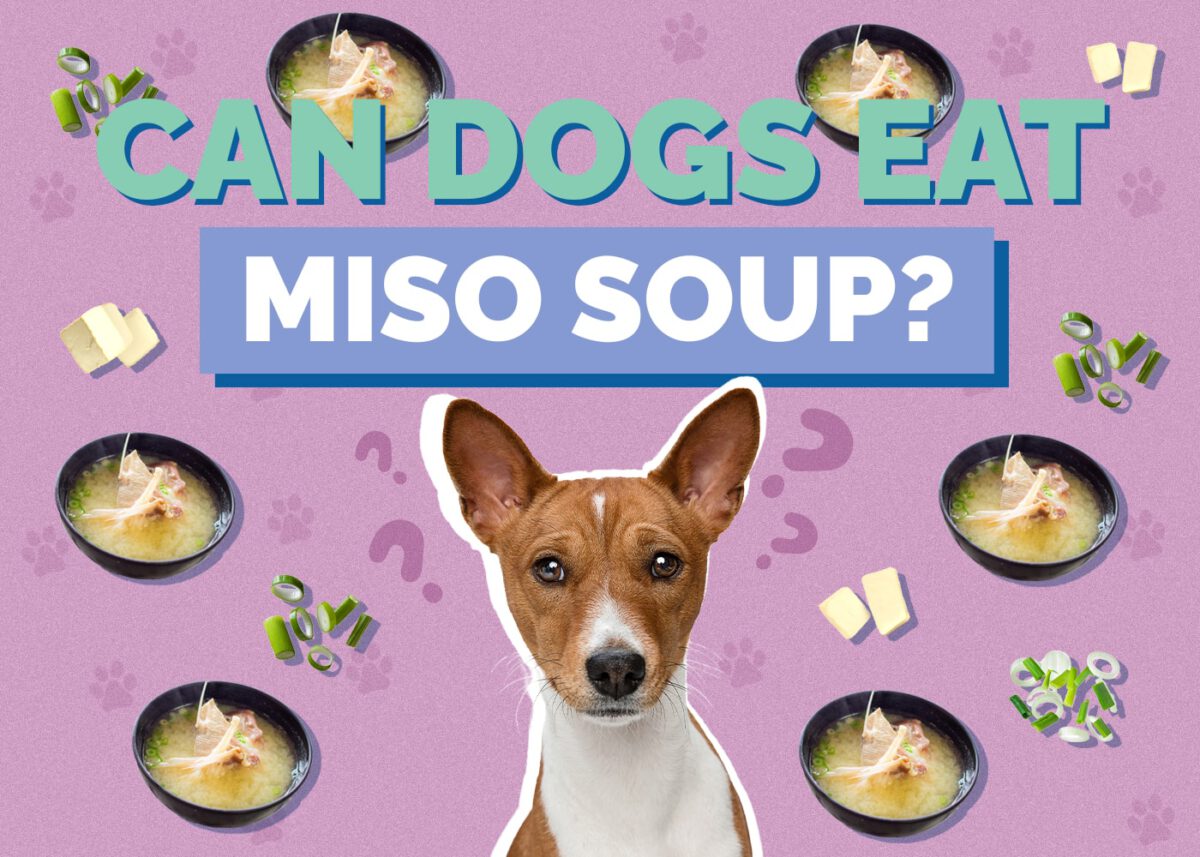Miso soup is a beloved Japanese dish enjoyed by people worldwide. It’s a traditional soup that often accompanies rice and has become a staple in Japanese cuisine. But what about our furry friends? Can dogs partake in this savory delight? Let’s explore whether miso soup is safe for dogs and what you need to consider before sharing this treat with your canine companion.
Is Miso Soup Safe and Healthy for Dogs?
Miso soup can be safe for dogs if certain precautions are taken. It’s important to note that miso soup should only be given to dogs in small amounts and without any harmful ingredients. If you’re using premade miso soup, check the label for unsafe ingredients or consider making the soup from scratch.
Unsafe Ingredients in Miso Soup
Some ingredients commonly found in miso soup can be harmful to dogs. This includes garlic, onions, salt, soy sauce, scallions, and leeks. These ingredients belong to the allium plant family, which is known to be toxic to dogs. Foods like onions, leeks, garlic, and scallions contain substances that can damage a dog’s red blood cells, making them unsafe for consumption.
In addition, miso paste, a key ingredient in miso soup, is made using salt. While salt is essential for dogs in moderation, excessive amounts can lead to salt toxicity. Therefore, it’s best to avoid feeding your dog miso soup that contains high levels of salt.
Dog-Safe Ingredients in Miso Soup
Not all ingredients in miso soup are harmful to dogs. Some safer options include carrots, store-bought mushrooms, spinach, ripe tomatoes, unseasoned seaweed, soybeans, and tofu. These ingredients can provide dogs with vitamins, minerals, plant-based protein, and various nutrients. It’s important to remember that these foods should be fed in moderation and as part of a balanced diet approved by a veterinarian.
Always consult with your vet before introducing new foods to your dog’s diet, especially if they have any underlying health issues.
What Happens If a Dog Eats Miso Soup?
If your dog consumes miso soup, they may experience increased thirst due to the soup’s saltiness. Spicy ingredients in miso soup can also cause discomfort in their mouths, leading to excessive drinking. Dogs with sensitive stomachs might even develop diarrhea as a result of the ingredients in the miso paste and soup.
If your dog exhibits abnormal behavior, experiences vomiting, or consumes miso soup with toxic ingredients such as onions, garlic, or leeks, it’s wise to consult a veterinarian. The potential harm these ingredients can cause should not be taken lightly.
What Should Dogs Be Eating Instead?
Dogs require a diet that includes both plant-based and animal-based ingredients. They are considered facultative carnivores or omnivores. Depending on your dog’s specific needs, you can choose from pellets, wet food, raw food, homemade meals, or freeze-dried options. It’s essential to work with your dog’s veterinarian or a certified canine nutritionist to determine the best diet for them. Each dog is unique, and what works well for one might not suit another.
Regardless of the diet you choose, it should provide your dog with the necessary vitamins, minerals, and nutrients to maintain good health.
Frequently Asked Questions
Q: Can dogs eat miso soup with vegetables?
A: Some vegetables in miso soup, such as carrots, mushrooms, spinach, and tomatoes, can be safe for dogs. However, it’s crucial to feed them in moderation and alongside a balanced diet approved by a veterinarian.
Q: Are there any dog-friendly miso soup recipes?
A: Yes, there are dog-friendly miso soup recipes available. These recipes typically exclude harmful ingredients and are tailored to meet a dog’s nutritional needs. Ensure you follow a recipe specifically designed for dogs to make a safe and healthy miso soup.
Q: Should I consult my vet before feeding miso soup to my dog?
A: Yes, it’s always recommended to consult with your veterinarian before introducing new foods to your dog’s diet. They can provide personalized advice based on your dog’s health, age, and specific dietary requirements.
Conclusion
While miso soup may be a delicious and nutritious choice for humans, it’s essential to exercise caution when considering feeding it to your dog. Unsafe ingredients like garlic, onions, and excessive salt can pose risks to your canine companion’s health. When it comes to miso soup, it’s best to err on the side of caution.
Remember, there are plenty of other safe and healthy options available for your dog’s diet. Consult with your veterinarian to determine the best nutrition plan for your furry friend.
Pawsoha is dedicated to providing expert advice and information to help you make informed decisions about your pet’s well-being.

